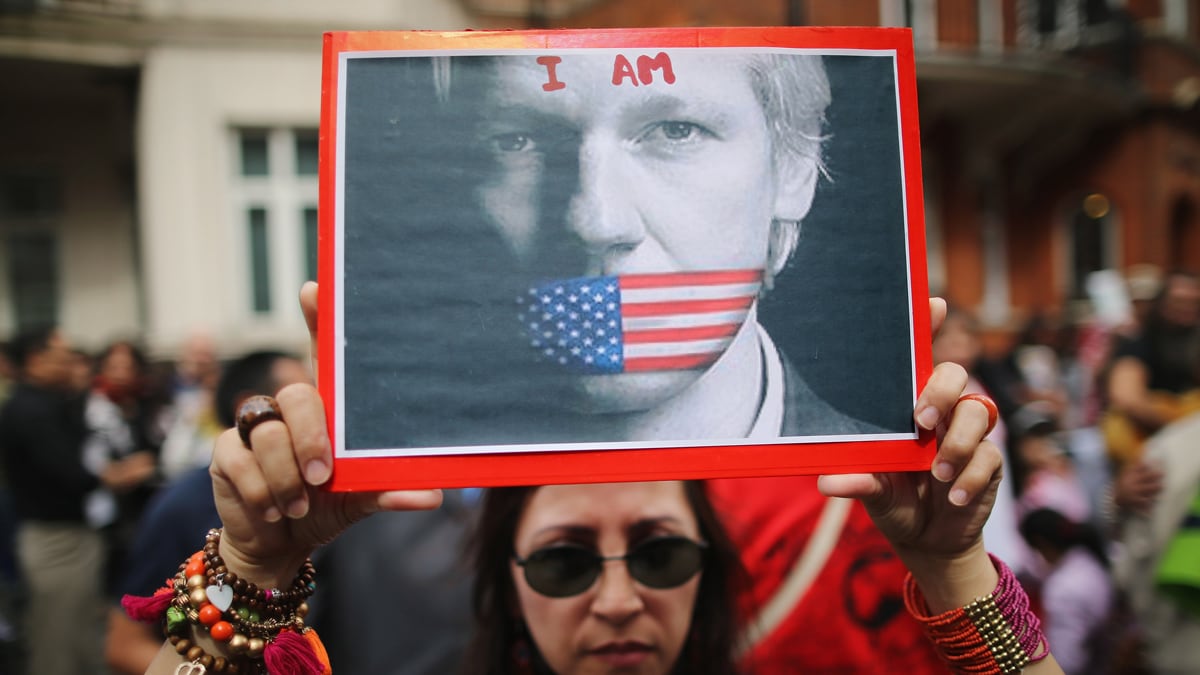The siege in Knightsbridge, set off when Ecuador’s government finally granted Julian Assange political asylum on Thursday, could be a claustrophobic and tense standoff. Ecuador’s London embassy, where he took refuge after the British supreme court denied his appeal against extradition to Sweden to face charges of rape and sexual assault, comprises only the ground floor of the substantial seven-story brick building. It is now ringed with a substantial police presence, most of it to keep international media, and the WikiLeaks founder’s supporters, at bay. The British authorities have insisted they will arrest the journalist and activist if he leaves the building for breaking his bail conditions. The 12-room embassy has no sleeping accommodation, though a shower has been installed for the 41-year-old Assange and he has been able to write updates to his Twitter account. Friends of Assange told The Daily Beast he was delighted when Ecuador granted him asylum, though also conceded he wouldn’t have sought refuge there in July had it not already been in the cards.
Despite rumors of a police raid on the embassy, the future of this siege looks set to involve a PR war of attrition, and a long, contentious litigious squabble. The British government on Thursday threatened to revoke the diplomatic status of the Knightsbridge embassy, but as legal bloggers Carl Gardener and David Allen Green point out, the underlying law is at best ambiguous and has never been tested in court. Nonetheless, the mere threat of it has been a gift to those who accuse the U.K. authorities of using a sledgehammer to crack a nut, and being the tools of a secret American plan to extradite Assange to the U.S. and treat him the same way as Bradley Manning, the former marine who provided WikiLeaks with its biggest ever scoop: millions of secret U.S. diplomatic cables.
Like the Greeks outside Troy, the main challenge for the besiegers is to keep a common front and stop fighting among themselves, but Assange has already caused significant divisions in the British government. The foreign secretary, William Hague, supported the threat to revoke diplomatic status, while his Foreign Office staff was aghast about how the move would be perceived overseas and the precedent it would set for their own embassies. Hague faced opposition not only from the Liberal Democrat deputy prime minister, Nick Clegg, but also the veteran Tory justice minister Kenneth Clark. In the end Prime Minister David Cameron had to step in and break the deadlock.

Not only has Assange therefore created domestic tensions in the U.K. government, he’s begun to cause a rift further afield. That Assange would choose President Rafael Correa’s country over Sweden has clearly left many Swedes incensed. Their foreign minister, Carl Bildt, has been busy pointing out Ecuador’s poor record on freedom of the press and civil liberties under Correa. Ecuador has been criticized by Human Rights Watch, Index on Censorship, and Reporters Without Borders. On Friday, the Ecuadorean government filed a motion to the Organization of American States calling for condemnation of U.K. threats to enter its London embassy.
Meanwhile, civil libertarians in both Britain and the United States have been deeply split by Assange’s latest move. Many supporters of WikiLeaks, such as Owen Jones, argue that the rights of the alleged victims of rape and sexual assault should first have their day in court. However, others claim Assange is not being afforded due process and is the victim of an American-led campaign to discredit and then charge him. Glenn Greenwald claims Ecuador showed “extraordinary courage” in giving the activist asylum. Some have noted that most Swedish prisons have much better facilities than the cramped Ecuadorean embassy and that, in accordance with European law, Sweden would not extradite a suspect to the U.S. who could face a death penalty.
Earlier Friday, Assange announced plans to talk the crowds from the window of the embassy, thus upping the ante once more. Love him or loathe him as a campaigner for journalism and transparency or a self-publicist with no regard for anyone but himself, Assange is certainly a genius at creating provocations and looks set to dramatically divide opinion inside his embassy bolt-hole for weeks to come.






